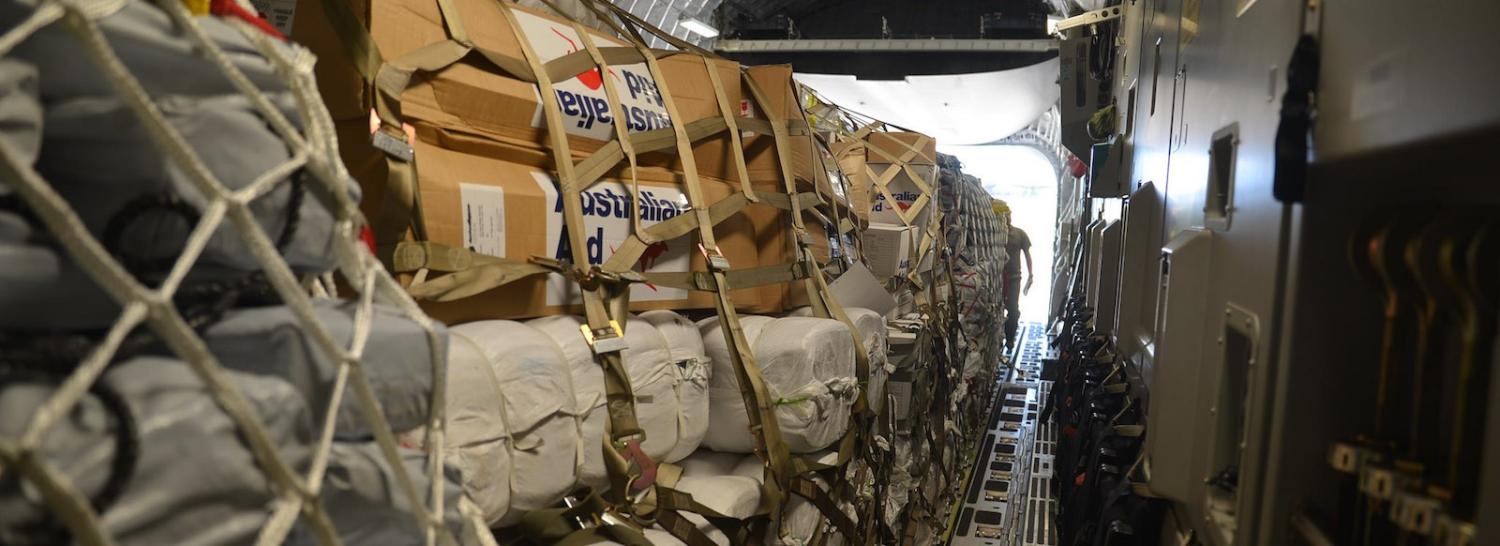This article is based on episode 4 of the Good Will Hunters podcast, featuring former deputy director of AusAID Richard Moore.
One draft title for this article was “Why I won’t campaign for Australian aid”.
While in some ways this statement is true, it has many, many caveats. A more accurate title may have been “Why I won’t campaign for increasing the aid budget until we talk about aid effectiveness”.
I support calls for our aid budget to be increased and argue for the benefits of a robust and effective aid program, in both diplomatic and humanitarian terms.
However, it’s reasonable to ask whether increasing the aid budget, without first discussing and advocating for the effectiveness of our aid, is ethical, let alone a sound investment.
Richard Moore, former deputy director general of AusAID, spoke at one of the first aid conferences I attended. His passion for reinventing the approach to aid, confronting its flaws and critics alike, was a powerful call to action. Moore refers to himself as an agent provocateur in the aid world, and acknowledges that it is his role to jolt people into introspection and action.
When talking about aid, the tendency is to discuss it in quantitative terms of the aid budget. This restricts the argument to dollar figures, percentages, and, in my view, largely archaic and arbitrary benchmarks – specifically the 0.7% of countries’ GDP benchmark established in 1975.
Reconsideration of the applicability and relevance of this benchmark in the contemporary context is desperately needed.
We should ask what purpose such a benchmark serves. Does the 0.7% figure function as a line in the sand, between states that support foreign aid and states that do not? Or does it simply distract from the real question regarding the effectiveness of aid spending?
I agree with the growing number of economists, practitioners, and humanitarians who argue that benchmarks restrict our debates to quantitative terms, when what we need more than ever is a qualitative discussion.
In April, in the weeks prior to the delivery of Australia’s latest federal budget, the prospect of further reductions to aid spending loomed large. Aid groups focused on trying to anticipate exactly how much would be cut, and from where.
And, just as anticipated, the 2018 budget marked the fifth year in a row that the aid budget has been reduced.
Many compelling arguments can be made about why increasing Australia’s aid budget could not only have an enormously positive humanitarian impact, but also improve relationships with our Pacific and Southeast Asian neighbours.
Yet there are arguments to the contrary, too: that aid is being misspent by corrupt and fraudulent foreign governments; and that increasing our aid budget might only worsen this situation.
Then there are the more theoretical arguments, that long-term aid is unsustainable or, at worst, neocolonial. Historically, those working in the aid sector have chosen to ignore or admonish these views, but such arguments should be better confronted. The insularity of the aid sector, and the reluctance to consider and answer to critics, has limited the robustness of debate.
There are many organisations focused on aid effectiveness, both within and outside our government, including InnovationXChange, the Research for Development Impact Network, and the Institute for Sustainable Futures, to name but a few.
Furthermore, we have an Office of Development Effectiveness within the Department of Foreign Affairs and Trade. Yet these are not the voices prominent in public debates.
In our discussion, Moore referred to Andrew Natsios, former director of USAID, and his calls for a greater focus on aid effectiveness, not aid expenditure.
Natsios, much like Moore, is an outspoken and refreshingly honest commentator in the aid arena. The message seems to be clear: that we want to ensure aid is as effective as possible, yet our discussions are obfuscated by a bean-counter mentality where we limit ourselves to critiquing aid expenditure rather than debating aid ideologies, policies, and systems.
Choosing to speak purely in dollar terms avoids hard questions about whether aid is being received in the ways so often assumed, whether aid is effective, and if the aid program should focus on broad support, or deep support.
It is little wonder the recent 2018 Lowy Institute Poll found that many Australians overestimate the size of the aid budget. Overcoming the insularity of aid debates in Australia, and beginning to argue in both qualitative and quantitative terms, would enable a much more informed, comprehensive discussion on aid.
